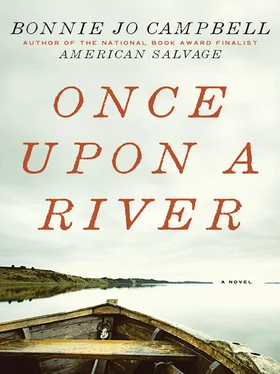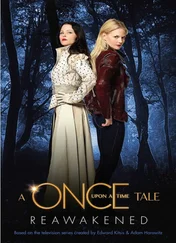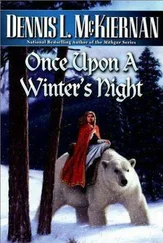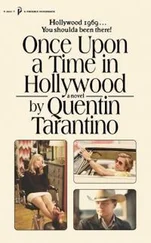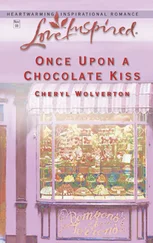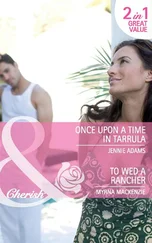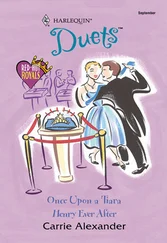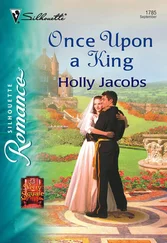1 ...6 7 8 10 11 12 ...17 “Cal?” Joanna said. “Is that right?”
“That’s right,” Cal said weakly. “Crane shot me. I thought he might shoot again. Billy was protecting me.”
Joanna moved as though in slow motion. She took off her long plaid coat, lifted Margo up—she felt incapable of resisting—and draped the coat over Crane’s head and chest. Margo pressed her face onto the plaid wool. Joanna moved to Billy, took him in her arms. He folded himself into his mother’s embrace and sobbed. Junior appeared. He took the shotgun from Cal and leaned it against the shed. Margo had not seen Junior in five months. He knelt at her side and put an arm around her for a few moments, before Joanna asked him to go get the car.
The two county cops assigned to Murrayville arrived a few minutes later, as dusk gave way to darkness. They confiscated Crane’s rifle and Billy’s shotgun and wrapped them in plastic. They said an ambulance was on its way. The bigger cop said, “Somebody bring a washrag to clean that poor girl’s face,” and Margo let Aunt Carol Slocum wipe her with a warm, wet cloth. Margo listened to Cal lie to the officers in a pinched voice. He said between shaky breaths that Crane had been upon him with the rifle, that Crane had shot out his tires a few days ago. Cal had been afraid something like this would happen. Cal guided Margo through the lie that condemned Crane but saved Billy and her. He said the girl was welcome to stay with them until they could find her ma.
After that, the officers spoke softly to Margo. She nodded in agreement about her father shooting Cal and pointing the gun at Billy. She repeated in a whisper what Cal had said. She hated involving the cops, and even if she had been inclined to tell what had really happened, she didn’t have the strength to disagree with Cal. And what would have been the point? Her father was dead, and nobody alive had any use for the truth. She did not want Billy imprisoned for murder. She wanted to deal with Billy herself, as she always had. An officer led him away. Junior and Joanna followed the police car out of the driveway in the family’s white Suburban.
When the ambulance first arrived, the paramedics checked Crane for vital signs and shook their heads, and one of them made a phone call. They countered Cal’s objections, convinced him to get into the ambulance, leaving Margo and a dozen others waiting in the cold for the medical examiner. Aunt Carol Slocum urged Margo to go inside the house and get warm, but she would not leave her father. The longer she clung to his body, the more the others seemed wary of her, as they had been wary when she sat with her grandpa during the weeks when he was dying. The rest of the family had avoided Grandpa at the end, and Margo had pitied them for not seeing the last part of his life, when pain made the big, opinionated man quiet and thoughtful.
They were all Murrays gathered around her now. For the first time in a year, she was, horribly, part of the family. When Julie Slocum came close to her, Margo reached out and grabbed her arm.
“Let go of me.” Julie pulled against Margo’s grip.
Margo looked her in the eye.
“Ma, she’s hurting my arm,” Julie yelled, and everyone looked over.
Margo whispered, “Why’d you have to go and get my dad?”
“You’re covered with blood,” Julie said. “You’re getting it on me.”
“Last year. That’s why all this happened,” Margo said. She held Julie’s arm like an oar handle. The girl was thicker now, with heavy breasts. She had a toughness in her face.
“Cal doesn’t want you anymore,” Julie said and pounded on Margo’s wrist with her free hand.
When Margo let go of her, Julie scrambled to her feet and moved away.
The police seemed satisfied with Margo’s minimal testimony. They also seemed to think Margo was with family, so she would be okay for the night. Why would a Murray kid need a social worker or a place to sleep in Murrayville? Carol Slocum grabbed Margo and wiped her face again with a warm rag. It was two hours before the medical examiner arrived in a white van. By then Margo’s fingers felt brittle with cold. The examiner’s assistant lifted her gently away from her father. They wrapped him in a plastic sheet and loaded him into the van. She watched the van depart. The river flowed in the direction of the funeral parlor, which was five miles downstream, beside the cemetery and across the river from the big Murray Metal shop building, which covered five acres of Murrayville under its metal roof.
Some of the women milled beside her. The men who remained were drunk or dumb with excitement. A few exhausted children stared with glittering eyes. Their ears were red, and their cheeks were flushed. Margo thought somebody should get them to bed.
“You’ll stay here tonight?” a woman said.
Margo shook her head and spoke as clearly as she could. “First I have to go home.”
“Do you know where Luanne is?” a woman asked eagerly from a few yards away. Margo was at first startled, thinking somebody knew and might tell her, but nobody knew. When her mother had first disappeared, Cal often asked Margo where she was. He said he’d like to set her straight about abandoning her child, he’d like to drag her back home.
When a woman Margo didn’t know snaked an arm around her, she slipped away and headed down to the water and into The River Rose. She wished she could have carried her daddy’s body with her across the river, as she had carried that buck’s carcass. In what there was of the moonlight, she paused to study the Red Wing work boots Crane had bought her a few months ago when he figured her feet had stopped growing. Some drops of his blood pooled on the oiled leather. She pushed off with an oar.
Once she reached her own dock, she climbed out and tied up her boat. The water was inky black. At Grandpa’s graveside ceremony last January, everyone had been lost in grief: Luanne wept nearby with Cal and his older sister, and Joanna tried to comfort her sons. Margo had felt the desire to step into the icy river and flow downstream. The only thing keeping her from doing it had been the solid body of her father beside her.
Margo took off her jacket and boots and put them at the base of the dock. She rolled off her socks and stuck them in her boots. Her feet were already numb from the cold. She eased into the water. She let her bare feet slide into the cold muck, stepped out farther from shore, sank deeper into the river’s bottom, screamed without making a sound when the water rose to her thighs. She walked out until her water lily—her mother’s phrase—was electrified by the cold. People across the way were milling under the yard lights, and she kept quiet so no one would notice her and think she needed rescuing. Margo’s hips pressed against the current, and her belly clenched when the cold reached it, and finally her heart rattled inside her chest. She shivered inside the electricity formed by her own body, felt carp and stinging catfish whipping by her. She imagined water snakes and black snakes coiling around her legs. Instead of feeling trapped by the river, which might freeze her or drown her, she felt terribly, painfully free. Without her father, she was bound to no one, and with the water flowing around her, she was absolutely alive.
She imagined the scent of cocoa butter in the cold air, that smell that had never quite left her mother’s skin, not even in winter, when she smoothed on cocoa butter lotion after showers. Margo held on to the floating dock and was able to pull her right foot free of the muck. She pulled the other bare foot free with as much difficulty, almost forgetting about her father in her own struggle. She dragged herself to shore.
She carried her boots into the kitchen and found the room bitterly cold. Crane had disconnected the furnace to save money, figuring they’d be fine heating the place with wood. Margo had meant to split kindling today, but hadn’t gotten to it, and now she didn’t know if her frozen fingers worked well enough to grip a hatchet or even to ball up newspaper. She looked around the kitchen. There were three pine chairs. And in the corner there was the wooden baby chair, made of maple. Margo retrieved the axe from the screen porch and struck the baby chair with the side of the blade, and then struck again. After the chair’s old joints rattled loose, she continued busting the wood into kindling on the kitchen floor. With those dry pieces and sheets of newspaper, she was able to start a fire.
Читать дальше
